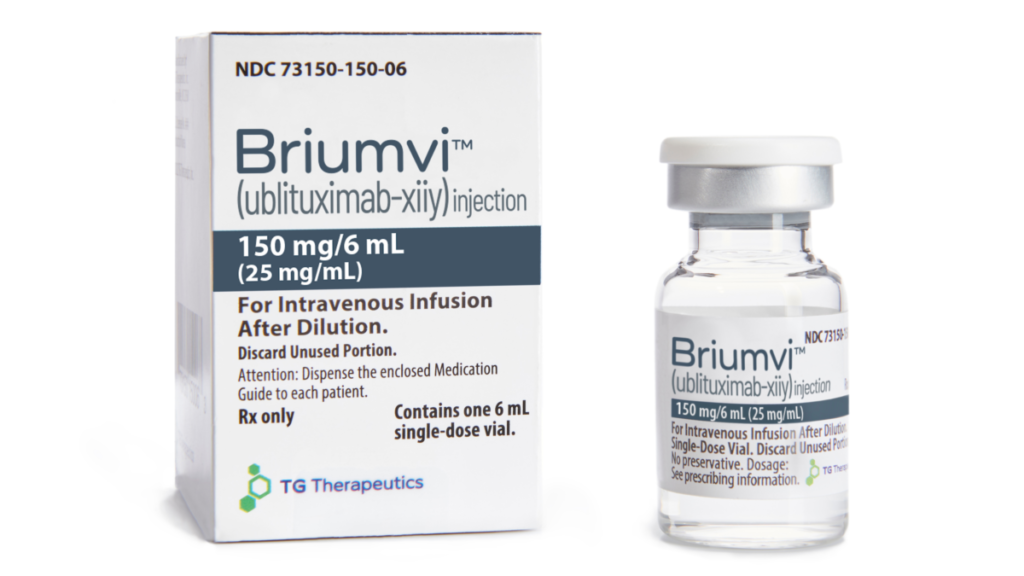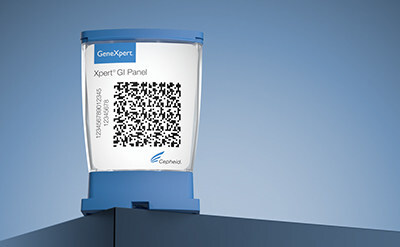Last week, the FDA approved a new infusible medication from TG Therapeutics for adults with relapsing forms of multiple sclerosis (MS), which include clinically isolated syndrome (CIS), relapsing-remitting (RR) MS, and active secondary progressive MS (SPMS). Briumvi (ublituximab-xiiy), a CD20-directed cytolytic antibody, is considered a disease-modifying therapy, which is a medication that may reduce the frequency and severity of relapses, damage to the brain and spinal cord, and potentially slow disability due to MS.
Multiple Sclerosis Overview
MS is a progressive autoimmune condition that affects approximately one million people in the US and 2.8 million people worldwide, as of 2020. While it affects both sexes, MS is more prevalent in biological females. Diagnosis is made based on neurological exam, MRI, evoked potential, lumbar puncture and other laboratory assessments.
MS is caused by degeneration of myelin, the fatty sheath that covers axons; just like an insulated wire, myelin facilitates the conductance of electrical signals in neurons. Damage to myelin results in lesions in parts of the brain and spinal cord, which cause numbness or tingling, muscle spasms and often disability. People with MS also experience a wide range of additional symptoms, including blurry vision, cognitive impairment and bladder and bowel problems, which significantly reduce function and quality of life.
People with MS may experience frequent relapses (or flare ups) in which their symptoms are more severe or new symptoms arise. Disease progression may be affected by age at first symptoms, number of brain lesions and ethnicity, although it is difficult to predict disease course and therefore select the most appropriate therapy.
Treating Different Types of Multiple Sclerosis
While MS is a heterogenous disease, there are four main types: relapsing-remitting MS (RRMS), secondary progressive MS (SPMS), primary progressive MS (PPMS), and progressive relapsing MS (PRMS).
RRMS, in which people experience relapses at irregular time periods, is the most common type of the disease. People with RRMS recover from relapses but their symptoms may not completely resolve. In addition to RRMS, relapsing forms of MS also include clinically isolated syndrome (CIS) and SPMS.
A smaller number of people with MS have PPMS, which is considered disease that progresses from initial symptoms accompanied by permanent damage for over one year without relapses. PRMS is far less common; similar to PPMS, the disease progresses from onset and people experience acute relapses and progression between relapses.
SPMS often occurs in people with RRMS, a progressive, irreversible disease course that results in disability. CIS describes people with MS symptoms who do not reach the criteria for diagnosis.
While there are over a dozen disease-modified therapies approved to treat MS, and many others to treat related symptoms, there is no cure. Additional treatments are needed to help slow progression and reduce the number and severity of disease relapses.
XTALKS WEBINAR: The RWE ROI Series: The Transformational Value of Real-World Data for Drug Development and Regulatory Decision-Making
Live and On-Demand: Wednesday, February 1, 2023, at 8:30am EST (1:30pm GMT/UK)
Register for this free webinar to explore relevant examples of how data science and digital health are accelerating pharmaceutical innovation and driving impact for patients.
Briumvi (ublituximab-xiiy) Clinical Trial Results
Briumvi is monoclonal antibody that is believed to bind to a cell surface antigen (CD20) on pre-B and mature B lymphocytes to block the effects of these immune cells from damaging myelin. The drug is formulated to reduce fructose content, potentially increasing its potency.
Two identical randomized, double-blind, double-dummy, parallel group, active comparator-controlled Phase III clinical trials were conducted to evaluate the safety and efficacy of Briumvi compared with teriflunomide, an approved MS therapy, in patients with relapsing forms of MS. Annualized relapse rate (ARR) was the primary endpoint in both the ULTIMATE I (Briumvi: n=271; teriflunomide: n=274) and ULTIMATE II (Briumvi: n=272; teriflunomide: n=272) across 96 weeks of treatment.
Patients either received intravenous Briumvi, with a 150 mg dose on day 1 and additional 450-mg doses on day 15 and at weeks 24, 48 and 72, and oral placebo or oral teriflunomide (14 mg once daily) and intravenous placebo.
In both trials, Briumvi treatment resulted in a significant reduction in ARR; in addition, there was a significant reduction in the number of brain lesions detected by MRI. However, there was no effect on risk of disability progression.
The most common side effects in the trials (reported by ≥10 percent of patients) were infusion reactions and upper respiratory tract infections.
These results were published in The New England Journal of Medicine in August 2022.
A New Therapeutic Option for Patients with Relapsing Forms of MS
“We are pleased to have a new treatment approved for people with relapsing forms of multiple sclerosis. MS is an unpredictable disease of the central nervous system that affects each person differently. Since we know that early treatment can minimize disease progression, it is incredibly important for people with MS to have a choice of treatment options to find the one that works best for them,” said Bari Talente, Executive Vice President, Advocacy & Healthcare Access at the National MS Society in a press release.
Briumvi is administered as a one-hour intravenous infusion every 24 weeks after an initial round of two infusions two weeks apart. Briumvi will cost $59,000 for two infusions a year; however, this does not take into account infusion fees, the coverage of which will differ across insurance carriers. Briumvi will likely be available for prescription by February 2023.












Join or login to leave a comment
JOIN LOGIN